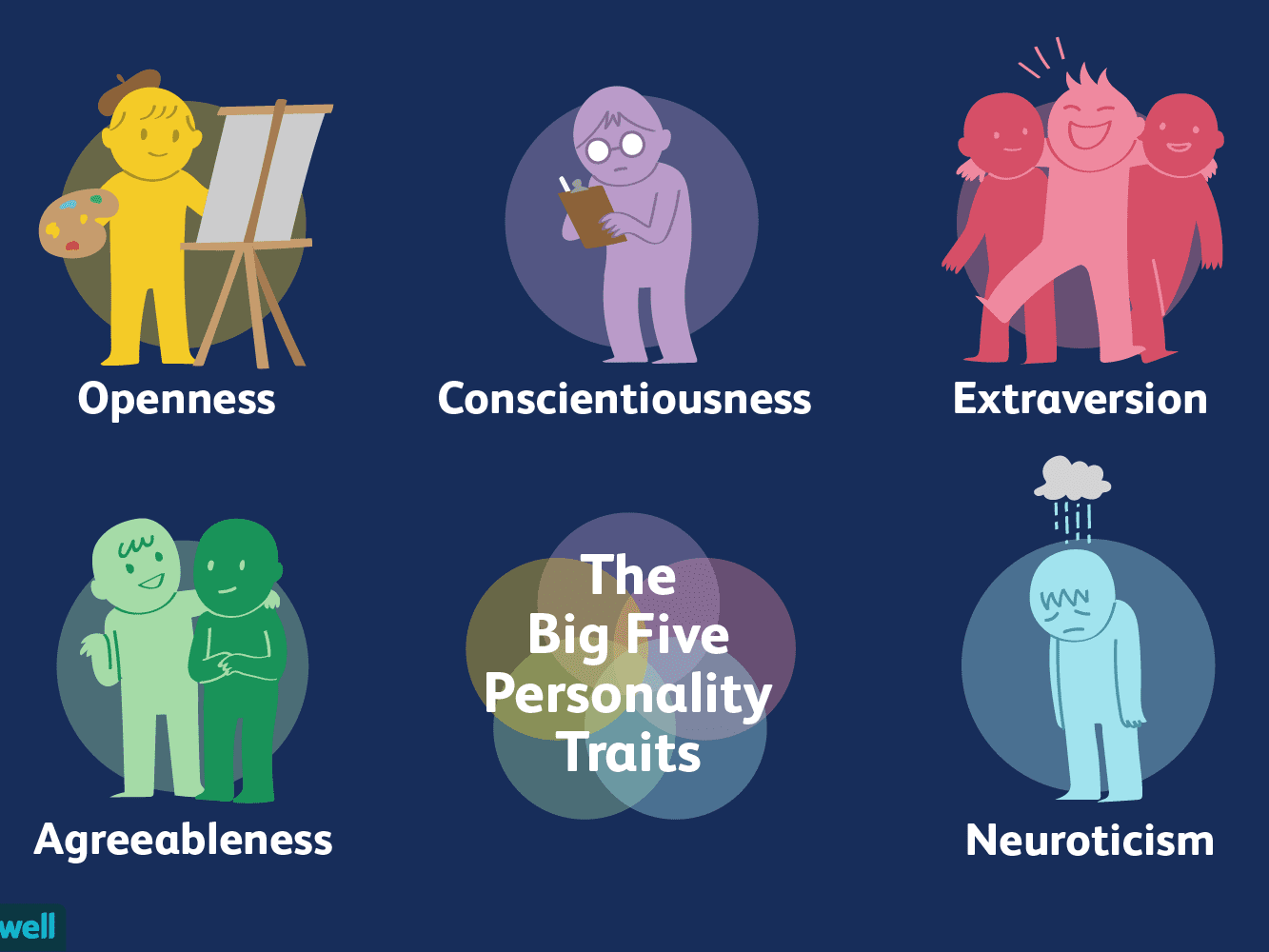
Big five personality traits
Personality:
it describes the relatively stable set of characteristics, tendencies and
temperaments that have been formed by heredity and by social, cultural and environmental
factors. These traits determine how we interact with and react to various people and
situations. Some of the aspects of personality are believed to be a result of nature-those
traits with which we are born and that we posses through heredity. Other characteristics of
our personality are thought to be as a result of our environment-those factors that we
acquire through exposure to people and events in our lives.
Personality traits are enduring characteristics that describe an individual’s attitude and
behaviour. Examples are agreeableness, aggression, dominance and shyness. Most of
these traits have been found to be quite stable over time. This means a person who is cold
and uncaring in one situation is likely to behave similarly in other situations. The “Big
five” model is a powerful instrument because it organizes numerous concepts into a “short
list” of just five factors that are representative of the characteristics that can be linked with
satisfaction and success. The Big Five has five primary components: extroversion,
agreeableness, emotional stability, conscientiousness and openness to experience.
Extroversion: represents the degree to which an individual is social or antisocial,
outgoing or shy, assertive or passive, active or inactive and talkative or quiet. A
person who rates high for first traits in these pairs is extroverted, while someone
who rates high for second traits is introverted. Extroversion or introversion, in
itself, is not necessarily bad, but extremes at both the ends of the spectrum can be
equally dysfunctional. A person who is too outgoing could be perceived as
overbearing and a person who is too reserved would lack the skills to relate to
others.
Agreeableness: measures the degree to which a person is friendly or reversed,
cooperative or guarded, flexible or inflexible, trusting or cautious, good natured or
moody, softhearted or tough and tolerant or judgmental. Those scoring high on the
first element of these paired traits are viewed as more disagreeable and difficult to
work with. Being too agreeable could cause a person to be too accommodating,
however the others may take advantage of this weaknesses.
Emotional Stability/ neuroticism: characterizes the degree to which a person is consistent or
inconsistent is how they react to certain events, reacts impulsively or weighs
options before acting and takes things personally or looks at a situation objectively.
Those who rate high on emotional stability are viewed as generally calm, stable
having a positive attitude, able to manage their anger, secure, happy and objective.
Those who rate low are more likely to be anxious, depressed, angry, insecure,
worried and emotional.
Conscientiousness: represents the degree to which an individual is dependable or
inconsistent, can be counted on or is unreliable, follows through on commitments or
are generally perceived to be careful, thorough, organized, persistent, achievement
oriented, hardworking and persevering. Those who score lower on this dimension
are more likely to be viewed as inattentive to detail, uncaring, disrespectful, not
interested or motivated unorganized, apt to give up easily and lazy.
Openness to experience: characterizes the degree to which people are interested in
broadening their horizons or limiting them, learning new things or sticking with
what they already know, meeting new people or associating with current friends
and co-workers, going to new places or restricting themselves to known places.
Individuals who score high on this factor tend to be highly intellectual, broad
minded. Curious, imaginative and cultured. Those who rate lower tend to be more
narrow minded, less interested in the outside world and uncomfortable in unfamiliar
surroundings and situations. Professionals who are open to experience are more
willing to reflect on feedback for personal development.
Self-monitoring: is the tendency to adjust our behaviour relative to the changing
demands of social situations. The concept of monitoring our own personality can
help us come to grips with both those qualities we view as positive and those we
would like to change. By being aware of the role of self-monitoring, we can assess
our own behaviours and attitudes; diagnose which elements we are satisfied with,
and identify and develop plans for addressing those aspects we want to change.
When self-monitoring, it is important to want to set personal standards in
accordance with certain accepted norms. High self-monitors are very sensitive to
external cues and constantly adapt their true selves to conform to a situation or set
of expectations. Low self-monitors are more consistent, displaying their feelings,
attitudes and behaviours in every situation


